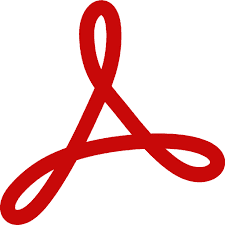Vad är coaching?

Coaching kan beskrivas som en metod och tekniken kan användas till att vägleda, en individ till ett nytt lärarande inom definierade tidsramar.
Det finns många definitioner på coaching. Med så många varierande och motsägande definitioner har det föreslagits att ge sig in i debatten om att definiera coaching vid denna tidpunkt är en övning i abstraktion (Jackson, 2005). Även produktiva akademiska författare (Clutterbuck och Megginson, 2005) förändrar deras syn och som indikerar på att området fortfarande håller på att utvecklas och flyter på. Så långt tillbaka som 1994, Garvey (1994) refererar till ”en-till-en hjälpen” och föreslår sålunda ett koncept för om definering av begreppet, med ett liknade Esperanto hopp om att ”en-till-en hjälp” kanske kan bli pånyttfödd av ett ovårdat begrepp, fastän effektfullt som ett skildrande begrepp men är inte lika ”gångbart” i varumärkes sammanhang.
Några författare har föreslagit att mentorskap är modellen för coaching och att mentorskap som en arbetstitel är för formellt. De använder uttrycket coach, då det är mer tydligt aptitligt (Hudson, 1999). För en tid sedan, i ett heroiskt försök att skapa någon form av sammanhang inom denna förvirrade vy, ser vi att framstående författare inom området inte är nöjda med att acceptera endera av dem som underliggande den andre. De påstår kategoriskt att skillnaderna mellan dessa två begrepp orsakar förvirring och att de berörda bör starta att följa med till den överenskomna Coach-Mentor begreppet (Parsloe & Wray, 2005).
Coaching definitioner kan vara så enkelt och innehållande som, ”processen av att ge kraft och styrka för andra” (Whitmore, 1997). Eller mer definitivt: ”en process som möjliggör lärande och utveckling till att uppstå och sålunda att förbättra prestationen ”. Att vara en lyckad coach kräver kunskap och en förståelse för processen, såväl som variationen av stilar, kunskaper och tekniker som är lämpliga i det sammanhang som coaching äger rum (Parsloe, 1999). Perspektivet spelar också en enormt stor del i tolkningen av de individuella bidragsgivarnas definition. Mentorer betraktar coachning som huvudsakligen kunskapsbesläktade, med specifika kapaciteter som anknyts till resultat (Cranwell et al, 2004). Coachen skiftar fokus till resultaten i jobbet (Megginson och Clutterbuck, 1995) och ett primärt fokus på prestationen inom det nuvarande jobbet och betonar utvecklingen av kunskaper (Clutterbuck, 2004).
Definitioner som coacher använder har utvecklats över åren. Från det något pittoreskt, potentiellt farliga och trångsynta tilltron att ”den mest viktiga aspekten av coaching är att bli accpeterad, respekterad och omhändertagen snarare än utbytet av information mellan coachen och coachee (mottagaren) (Olalla, 1998). Till företagsdefinitionen som uttalar att ”coaching är en möjliggörande process till att öka prestationen, utvecklingen och uppfyllelsen” (Alexander & Renshaw, 2005). Intressant är at Megginson (1988) så långt bak som år 1988 erbjöd synen att coachingen är mer effektfullt i en persons utveckling om den gjorts vid specifika skeden. Således i ett näringslivssammanhang är coaching mera roll, jobb och projektspecifik (Williams, 2000). Om vi följer denna linje av tankar som specifika interventioner på lämpliga tider i en personutveckling är den mest effektfulla metodologin, då ett ganska utbrett urval av coaching interventioner krävs. Och vi kommer att se att vad är nytt är att coaching har tagit till sig psykologi, sportpsykologi och utbildning (Zeus & Skiffington, 2000) och är nu upptagen med att bygga upp ”säljbarheten och trovärdigheten”.
Ursprunget till Coaching. Historia
Begreppet ”coach” sågs först under 1500 talet som refererande till en metod med vagn, faktiskt en häst draget fordon som har sitt ursprung i den lilla ungerska staden Kócs (som uttalas ”koach”). I mitten av 1850 talet användes begreppet coach på engelska universitet och som refererar till en person som bistod deltagarna i examensförberedelser (Zeus och Skiffington, 2005) och verkar att ha kopplingar till ”tentamenspluggande” och som till synes återuppväcker den kunskapen med många uppgifter som var associerade med att kontrollera laget av hästar som drar en diligens (Wikipedia, 2005). Coaching ser sina rötters upphov i den Humanistiska Psykologin (Zeus & Skiffington, 2000) som fokuserar på en persons förmågor och inre verkligt värde.
Coaching i näringslivet
Då humaniströrelsen kom att dyka upp börjar vi att se en parallell till utvecklingen av coaching inom näringslivet vilket man kan se i de framträdande granskade tidskrifterna. Gorby (1937) beskriver äldre anställda som arbetande som coach åt nya anställda för att minska på slöseri för att uppnå en prestationsbonus. Bigelow (1938) återberättar att säljchefer som coachar säljare. Mold (1951) rapporterade om ”chefen som coach” -programmet. Hayden (1955) förordade att ”uppföljning” coaching förbättrade utvärderingarna. Mahler (1964) indikerade svårigheterna för organisationer att få deras chefer att vara effektiva coacher. Gersham (1967) utvärderade effekten av arbetsledarna på ”attityd- & jobbresultat”. Tobias (1996) rapporterar om en tekniskt ”utmärkt” 44 år gammal chef, som arbetar som coach på ”mjuka färdigheter. Fastän det som rapporterats ”i de framträdande recenserade akademiska journalerna” så är referaten huvudsakligen ”fallstudier”, och ”kommentarer” som kontrasterar till det nyligen rigorösa analytiska arbetet så som studien från Manchester Consulting Group (Zeus & Skiffington, 2005). Denna grupp skriver om 5.7 gånger ROI i anslutning till ett coachingprogram som lanserades mellan 1996-2000. Även forskningen fokuserades och inriktades mot en tillverkning eftersom detta stod för den finansiella maktbasen på den tiden och koncepten av ”mer makt till arbetsstyrkan” och ”humant kapital” annat än just bara operativ resurs kan komma att dyka upp senare.
Till synes ”livscoaching” konceptet visades första gången med moderna definitioner i en coach liknande aktivitet i ett program som siktade på högstadie och gymnasieskolans avgångar. Detta arbete låg i förgrunden för bekämpningen av fattigdom som påbörjades under 50-talet från ett YMCA-sponsrat träningprogram i Bedford-Stuyvesant, Brooklyn, N.Y. Dess syfte var att söka en mer kraftfull rådgivnings/lärande metoder i att hjälpa personer lära sig psykologiska och sociala färdigheter för att klara av de mer förutsägbara utvecklingsproblemen i livet (Adkins, 2006). I slutet på 60-talet blev forskningen mer rigorös (Grant & Cavanagh, 2004). Detta fokuserade på mer akademiska metodiker där katalysatorn för den trovärdighet som krävdes av de mer progressiva kommersiella personerna. Och som sådan kom födelsen av exekutiv & affärscoaching att dyka upp från ledarskapsprogrammen under 80-talet (Zeus & Skiffington, 2005).
Det verkliga genombrottet av Coaching kom med mixen av sport och näringsliv, faktiskt återuppfann sig själv. Tim Gallwey (1974) med sitt inre tennisspel , var en primär katalysator för att arbeta som privatlärare i ett affärssammanhang med den snabba övergången av andra noterbara sportcoacher, liksom: John Whitmore (mästare inom tävlingsracing), David Hemery (Olympiska Häck Medaljör) och David Witaker (Olympisk Hockeycoach).
Coaching i sin moderna klädsel föddes ut ur Constructionist Learning Theory (Teorin om Byggsatslärande) (Williams & Irving, 2001), med en kärntro på att det inte finns bara en enda sann verkliga tolkare eller tolkningen av verkligheten (Zeus & Skiffington 2005). Man kan se födelsen av coaching från principer som påstår: alla konstruerar vi vår egen förståelse till världen som vi lever i med hjälp av reflektion utifrån våra erfarenheter”. Och intressant nog kan man se att 90-talet vad några trodde skulle bli en våg i ”quasi-filosofiska” grupper som finner särskild favör för de som är engagerade i ledning och kommunikationsutveckling (Parsloe & Wray, 2005), det är möjlighet att ser hur fenomen som NLP (Grinder & Bandler, 1989) ”har plockat godsakerna” från sådana områden som Constructionist Learning Theory Bateson's ( 2000) Cybernetics, Chomskys (1972) Språkteorin och Landamatics (Landa, 1974). Det är denna en approach med ”plockandet av godsakerna” och behoven av en kommersiell företagsvärld, som har genererat behovet av en 'forskningsutövningsmodell för coaching', där en mer akademisk och rigorös metodologi kommer att agera som en jämförelse och validering på detta området. För många är coaching långt ifrån att vara ett yrke ännu, trots förekomsten av alla de som arbetar som coach professionellt (Grant, 2003b). Det nuvarande intresset kring definitionen och dess giltighet kan förklaras med ett yrke som ”har konvergerat” i stället för ”att ha dykt upp” på dess nuvarande position.
Användningen av Coaching. Användningsområden
- Företagscoach.
- Exekutiv (Lednings-) coach.
- Livscoach, (Idag även hälsocoach, PT etc).
- Prestationscoach.
- Sportcoach.
- Arbetsplatscoach.
Stegen i Coaching (Coachande, Coachning, Coach, Rådgivare). Process
Som inte är allmänt vedertagen.
Styrkor med Coaching. Fördelar
- Den dominerande fördelen av att arbeta som coach individuellt och med företag är underlättat av själv-inriktat lärande. Fastän att lärandet möjliggörs via en coach så är den verkliga bakomliggande fördelen med coaching i förmågan hos individen av att ”gå vidare” från erfarenhet och framåt mer som en kapabel bidragsgivare.
- Vad beträffar att behålla och utveckla begåvning indikerar att studier på betydliga fördelar för företag som uppmuntrar till aktiv coaching under övergångs-/förändringsfaser.
- ROI för coaching är betydligt högre än vanlig klassrumsträning speciellt i exekutiva miljöer där studier visar att de skiljer ut sig upp till 30 gånger snabbare än i gruppen bestående av mellanchefer.
Begränsningar med Coaching. Nackdelar
- Coaching är inte terapi. Om det är så att coachee:n (mottagaren) därefter kan bli beroende.
- Kan ses som en prestigeposition i ett företag och kan därmed skapa en kliché av coacher och politiska påverkare.
- Försök att tala om för din chef att han är en dålig coach!
Antaganden i Coaching. Villkor
- Coaching bygger verkligen vidare på idén från Malcolm Knowles och ”vuxenlärandet”, som i huvudsak säger att individen har ansvar för sitt eget lärande och allt engagemang, bör ”vägledas, i stället för att ledas”.
- Detta är ett otroligt invecklat ämne för en ganska enkel sak. Skälen till att coaching inte i sig själv är en modell som definierats, modeller liksom GROW, är verktygen för coaching.
- För närvarande finns det inte någon central modell som erbjuder en vedertaget accepterad definition.
Bok: Zeus & Skiffington - The Coaching at Work Toolkit
Bok: Mary Beth O'Neill - Executive Coaching with Backbone and Heart
Bok: Bruce Peltier - The Psychology of Executive Coaching
|
Särskild Intressegrupp SIG
|
|
|
|
Forumdiskussioner om Coachning.

|
Coaching by Managers and by Leaders
I've been a long time manager in multinational companies and I am since 8 years a self-employed business coach. As a professional coach I support my coachees in finding their own solution of their own...
 47  27 kommentarer |

|
Has Coaching Become Too Technical?
I have been researching coaching for a number of years - partly in the hunt for the 'simple but effective' set of tools. The more I read, the more I seem to get confused.
In my early learning of coac...
 23  9 kommentarer |

|
Qualities of a Good Coach. Checklist
The importance of coaching cannot be underestimated. However, identifying a good coach is far from easy. Here's a checklist of qualities for a good coach I recommend:
- More knowledgeable in the area...
 20  5 kommentarer |

|
Effective Coaching
An effective coach is a skilled and knowledgeable individual who understands that all individuals, if they are not already achieving their true desires, are offering some form of resistance in terms o...
 15  6 kommentarer |

|
The Impact of Personal Coaching
Personal career coaching is akin to having a skilled navigator on a journey towards professional fulfillment. A coach serves as a GUIDING LIGHT, illuminating the path, and providing valuable insights ...
 15  11 kommentarer |

|
How to Get Help from Someone Else?
Most people are a bit reluctant to ask for help, especially in the work environment. That is because we feel uncertain, are afraid to be rejected, or fear for diminished status.
Heidi Grant argues th...
 11  9 kommentarer |

|
Coaching as Social Capital
I have always been fascinated by the references in the literatures and in coaching trainings to the coach-client relationship. Clearly the relationship is important, but is it anymore important in oth...
 11  4 kommentarer |

|
The Need for Relational Coaching
The term 'Relational Coaching' might seem to be synonymous to Coaching, since coaching always involves at least two people that communicate and form a relationship in some way. However, the term relat...
 11  4 kommentarer |

|
Coaching and Pedagogy
I would like to see the difference between coaching and the roman concept of pedagogical leading.
To me, the difference could be the knowledge the coach should have about the strenghts of the coachee...
 10  4 kommentarer |

|
Use of the Body in Coaching
What do you think about coaching approaches that use the body to generate awareness and to develop soft skills…
- Are they acceptable in your culture?
- Do they fit in corporate coaching?...
 9  5 kommentarer |

|
The Wheel of Life: Balance your Life
Life is not uni-dimensional; balance in life comes from fulfillment in all areas. If we overly focus on one or just a few areas of our life, these tend to to weigh heavily on our psyche and bring abou...
 7 |
|
|
|
Kurser om Coachning.

Nybörjarkurs
|

Avancerad Kurs
|

Kurs för Experter
|
|
|
|
De bästa, högst rankade ämnena om Coachning. Här hittar du de mest värdefulla idéerna och praktiska förslagen.
|
🥇
|
Team Coaching by Managers
Are you a manager or a coach? According to a new book by Google's Eric Schmidt, Jonathan Rosenberg and Alan Eagle there is little difference.
The Trillion Dollar Coach is a tribute to Bill Campbell...
 35  8 kommentarer
|
|
🥈
|
Mentoring versus Coaching
Mentoring has high interest for me. Based on my observation and that of other officers, a great gap exists in planning and delivery. So mentoring should help to improve teacher competencies. A more ex...
 28  23 kommentarer
|
|
🥉
|
ACT Hexaflex Therapy and Business Coaching
What is ACT Hexaflex Therapy. Meaning
ACT is a behavioural-focused psychological flexibility treatment or therapy which was developed by Steven C. Hayes in the 1980s. ACT is a process-based therapy, ...
 21
|

|
Why Leaders Need Coaching
Leaders must be very conscious of their actions and of the impact they have on others. Coaching is an excellent tool to gain consciousness. Any other reasons why coaching is particularly useful for le...
 12  9 kommentarer
|
|
|
|
Avancerad insikt om Coaching (Engelsk). Här hittar du professionella råd från experter.

Rådgivningstips
|

Undervisningstips
|

Praktiska Implementeringstips
|
|
|

|
Myths on REACHING the top What Experiences, Qualifications and Characteristics are Needed to Reach the Top?
I'd like to contribute a summary of an article by HRM Professor Monika Hamori of Instituto de Empresa Business School. H...
|

|
How to Prepare Someone for a Critical Situation Leadership, Crisis Management, Preparing for a Major Event, Preparing for a Pivotal Moment, Coaching, Negotiating
When people are connected to their core self and values, they are more likely to achieve their best performance as they ...
|

|
Write a Personal Mission Statement Establish focus on who you want to be in your life...
Covey wrote this pearl of wisdom in his book Seven Habits: "The key to the ability to change is a changeless sense of wh...
|

|
Building an Organizational Coaching Capacity Developing an Organizational Coaching Capacity, Learning Organization, Developing Coaching as an Organizational Capacity
COACHING ON AN INDIVIDUAL LEVEL
In their book "Trillion Dollar Coach: Lessons for Managers", Google's Schmidt, Rosenber...
|

|
GENIUS Coaching Model Coaching Talented People
I developed the GENIUS coaching model as a guide to managing a creative thinking coaching session. This grew out of my e...
|

|
What is Your Leadership Point of View? Reflection on your Leadership Style
In my experience very few leaders are able to define and succinctly articulate their leadership point of view. The reaso...
|

|
Promotion-focused versus Prevention-focused Employees Motivating your Coachee
An interesting way to look at coachees for motivation purposes is described by Heidi Grant Halverson and E. Tory Higgin...
|

|
Personal Benefits of Coaching Explaining the Advantages of Coaching at Coacheel Level
Here is a list of some typical advantages of using a coach as an assistant to your personal and professional development...
|

|
History of Coaching Organizational Development, Background of Coaching
- In the context of management, the term coaching appears to have first been used by Myles Mace in 1958 and was seen as ...
|

|
The GROWTH Framework for Coaching Extended Coaching Model to Guide Coach-Coachee Interactions
The GROWTH model adds two more dimensions to this coaching model. Once deciding what the coachee will do, we look at:
-...
|

|
Identify and Develop Leadership Abilities Leadership Development, Management Development, Coaching, Mentoring
Covey's 4 Roles of Leadership® helps managers to identify and develop 4 important abilities of 'true' leaders:
Modeling...
|

|
Organizational Benefits of Coaching Explaining the Advantages of Coaching at Organizational Level
Here are some typical benefits of using a coach to overcome problems within an organization:
- Coaches may help to iden...
|

|
What is the Opposite of Situational Leadership? Leadership Development, Management Development, Coaching, Mentoring
Situational Leadership can be seen as an adaptive style. The opposite, non-adaptive, or inflexible, style of leadership ...
|

|
Five Leadership Development Ideas Leadership Development, Management Development, Coaching, Mentoring
Although years of research and analysis by biographers, historians, and scholars have produced an enormous library of bo...
|

|
How to Develop your Own Leadership Philosophy Leadership/Management Development, Coaching, Mentoring
In an article “When should a leader be directive or empowering? How to develop your own situational theory of leadership...
|

|
Ineffective Behavior Analyzing Manager, Employee or Self Behavior
There are many different forms or manifestations of ineffective behavior, such as
- Finding it difficult to say 'no'.
...
|

|
4 Patterns of Behavior Creating Behavioral Awareness
According to Willem Roding there are 4 patterns cuasing behavior:
1. INSTINCT: Stimulus --> Reflex. Automatic decision:...
|

|
The Relationship between the Power of Leaders and Overconfidence Leadership, Power, Leadership Development, Executive Education
Fast et al. (2012) researched the relationship between power and overconfidence. In many cases it can be seen that decis...
|

|
Psychoanalysis and Coaching Similarities and Differences
Psychoanalysis is focused on what does not work, on dis-functional thoughts and behaviour, depending on the approach it ...
|

|
Recognizing Distressed Managers in Leadership Pipeline Transition Coaching, Mentoring, Management Development, Leadership Development
Moving from one manager level/phase to the following in the Management / Leadership Pipeline is a difficult task. Freedm...
|

|
Freud's Personality Types Personality Types, Leadership Development, Management Development, Coaching, Mentoring
Freud recognized that there are an almost infinite variety of personalities which could be in the end broken down into 3...
|

|
How to Assess Relational Skills of the Coachee? Human Resources, Leadership
You can use the 4 dimensions of relational skills to assess relational skills:
Influence skills:
- Look for a history...
|

|
How to Develop Better Relational Skills? Human Resources, Leadership
Although it is not necessary to be interested in or skilled at all four dimensions of relational work in order to succee...
|

|
CEOs Time Spent per Stakeholder / Constituency CEO Coaching, CEO Time Management, Stakeholder Management
Research by Porter, Nohria and Higgins among 27 CEOs revealed the following interesting data on with whom they spend the...
|

|
The Best Managers in Coaching Employee Development, Employee Growth, Coaching by Managers, Mentoring, Career Management, Management Development
Gartner (2018) surveyed 7,300 employees and executives across 25 industries and found that there are 4 types of managers...
|

|
Family-Work Conflicts (FWC) and Daily Job Performance Family-work conflicts, Coaching, Mentoring, Job Performance
FAMILY ROLES and WORK are two factors influencing each other: - Work can interfere with family roles; this is called a W...
|

|
Practical Tips to Increase the Performance of your Employees Employee Development, Employee Growth, Coaching by Managers, Mentoring, Career Management, Management Development
The performance of an employee (or a team of them) depends on many factors. One of the main factors is how well the empl...
|

|
Leadership Self-Assessement Leadership Training, Leadership Development, Coaching, Mentoring
Before you seek training in leadership, you should assess your strenghts and weaknesses as a Leader by comparing with th...
|
|
|
|
Olika informationskällor om Coachning. Här hittar du powerpoints, videor, nyheter etc. som du kan använda i dina egna föreläsningar och workshops.

|
The Fatal Coaching Mistake by Managers Coaching, Mentoring, Management, Leadership
Managers and executives often don't realize how much influence they have over their staff, by just being their superior...
|

|
How to Become a Master Manager? Introduction to Managing People. Know Thyself
This good introduction presentation is about how to be a Master Manager. By J. S. Osland, D. A. Kolb, I. M. Rubin and M....
|

|
Introduction to Coaching Employees Organizational Coaching, Employee Assistance
Presentation about Coaching, thereby focusing on Employee Assistance (EA) coaching.
1. The Importance of Coaching
2. C...
|

|
Coaching vs Counseling A Comparison
Comparison of counseling and coaching on 6 characteristics....
|

|
Building the Helping Relationship 10 Principles for Facilitative Consultancy
Superb article by MIT Professor and OD consultant Edgar H. Schein in which he concludes that:
"... The decisive factor ...
|

|
Assess your Personality Type to Plan your Career Career Management, Career Planning, Personality Types
This presentation elaborates on how to define your personality and the career that suits best to you. The presentation i...
|

|
NLP: The 6 Neurological Levels 6 layers to view at the reality of a person or issue
Neuro Linguistic Programming (NLP) is used increasingly by businesses and individuals in HR, marketing, sales and organi...
|

|
Hearing versus Listening Communicating Effectively, Active Listening, Coaching, Mentoring
A comprehensive presentation about listening and how to do it well.
Includes a scheme of the steps in the listening pro...
|

|
Daniel Goleman on Competence Development Competence Development, Coaching, Mentoring
Daniel Goleman gives 5 steps on how to develop a personal competence:
1. Ask yourself: Do I really care?
2. Get honest...
|

|
Coaching vs Mentoring A Comparison
Comparison of mentoring and coaching on 7 characteristics....
|

|
Introduction and Summary of (Executive) Coaching Initial Understanding of Coaching
Chris Ruisi explains:
1. What is coaching?
2. What makes a good coach?
3. What is special about executive coaching?
...
|

|
Steven Covey on his 8 Habits of Effective People / Managers / Leaders Understanding the 8 Habits of Covey. Leadership Development, Management Development, Coaching, Mentoring
In this video Steven Covey explains his 7 habits plus the 8th habit he added later:
1. Be proactive
2. Begin with the ...
|

|
The Performance Effects of Coaching Coaching, Performance
Paper by Ritu Agarwal, Corey M. Angst and Massimo Magni on the effects of managers' coaching intensity on the performanc...
|

|
How to Manage Challenging Situations and Challenging People? People Management, Conflict Management, Persuasion, Challenging Situations
This presentation is about the management of Conflicts, other challenging situations and about managing challenging peop...
|

|
Manager? Why you need Coaching and Mentoring Skills Management Skills, Coaching Skills, Mentoring Skills, Management Development, Leadership Development
Effective managers understand the difference between their role as a mentor and as a coach in developing their people an...
|

|
Practical Communication Tips for Managers Management Skills, Leadership Skills, Management Development, Leadership Development, Situational Leadership
As manager you need to combine professional expertise and experience with specific character traits, interpersonal and c...
|

|
Communication Essentials: Non-verbal, Verbal and Listening Skills Communication Skills, Personal Skills, Confidence, Power, Influence, Sincerity, Trust
Presentation about communication skills, including non-verbal and verbal communication and listening skills. The present...
|

|
Mindfulness and Wellbeing at Work Wellbeing, Well-being, Mindfulness, Motivation, Employee Commitment Time Management, Coaching
This presentation elaborates on the concept of mindfulness in the workplace, and includes the following sections:
1. Ou...
|

|
The Role of Supervisor | Skills of Supervisors Skills of a Supervisor, Supervisor Role, Supervisor Behavior
This presentation elaborates on the skills that supervisors need in order to be successful in their business/organizatio...
|

|
All the World is a Stage (Shakespeare) Impression Management, Communication
Explanation of the main ideas of sociologist Erving Goffman regarding Impression Management.
Shakespeare wrote: "A...
|

|
Johan Cruijff on Coaching Coaching, Mentoring, Goal Setting, Teamwork
In this video legendary Dutch football player and coach Johan Cruijff (1947-2016) presents some of his inimitable ideas ...
|

|
Young Steve Jobs on the Role of Managers Management, Leadership, Talent Management, Talent Acquisition, Talent Development
This video is a nice start for any management course. Jobs shares some ideas on managers (in a high-tech environment) an...
|

|
How you can Change and Improve Yourself Self Development, Coaching, Mentoring, Management Development, Leadership Development
Coach Tony Robbins explains that you can only achieve good results in changing or improving yourself if you:
Not onl...
|

|
Peer and Co-worker Relationships Relationship Management, Emotional Intelligence, Coaching, Emotional Work, Relationship at Work, Employee Relationships
This presentation is about the relationship between peer and co-workers, and includes the following sections:
1. Nature...
|

|
Guide Toward Coaching your Employees Coaching Employees, Performance Reviews, Giving Effective Feedback
Presentation that provides information about the ways to effectively coach employees. The presentation includes the foll...
|
|
|
|
Användbara verktyg angående Coachning.

Nyheter
|

Videor
|

Presentationer
|
| |

Böcker
|

Akademisk
|

Mer
|
|
|
|
Jämför Coaching med : Mentoring (Mentorskap) | Faciliteringstilar | Ledarskapsutveckling Charan och Drotter | Hagbergs Modell om Personlig Makt | Kulturdimensioner | Kulturell Intelligens (Early) | Emotionell Intelligens Goleman | Ledningsmatris | Dimensioner på Relationsarbete Butler och Waldroop | Maslow Behovshierarki av Maslow | ERG Teori Alderfer | Spiral Dynamics Modell | Förändring av Organisationskulturer | Förväntansteori | Hela Hjärnmodellen från Herrmann | 7 Goda Vanor Covey | Sju Överraskningar Porter | Johari Fönster | Afrikanskt Ledarskapsmodell av Banhegyi | Ledarskapsstilar, Ledarstilar | Nivå 5 Ledarskap
Retur till Management Start: Organisation och Förändring | Kommunikation och Färdigheter | HRM och Personalfrågor | Ledarskap
Mer Management Metoder, Modeller och Teori
|
|
|
Särskild Intressegrupp SIG
|
|
|
|















